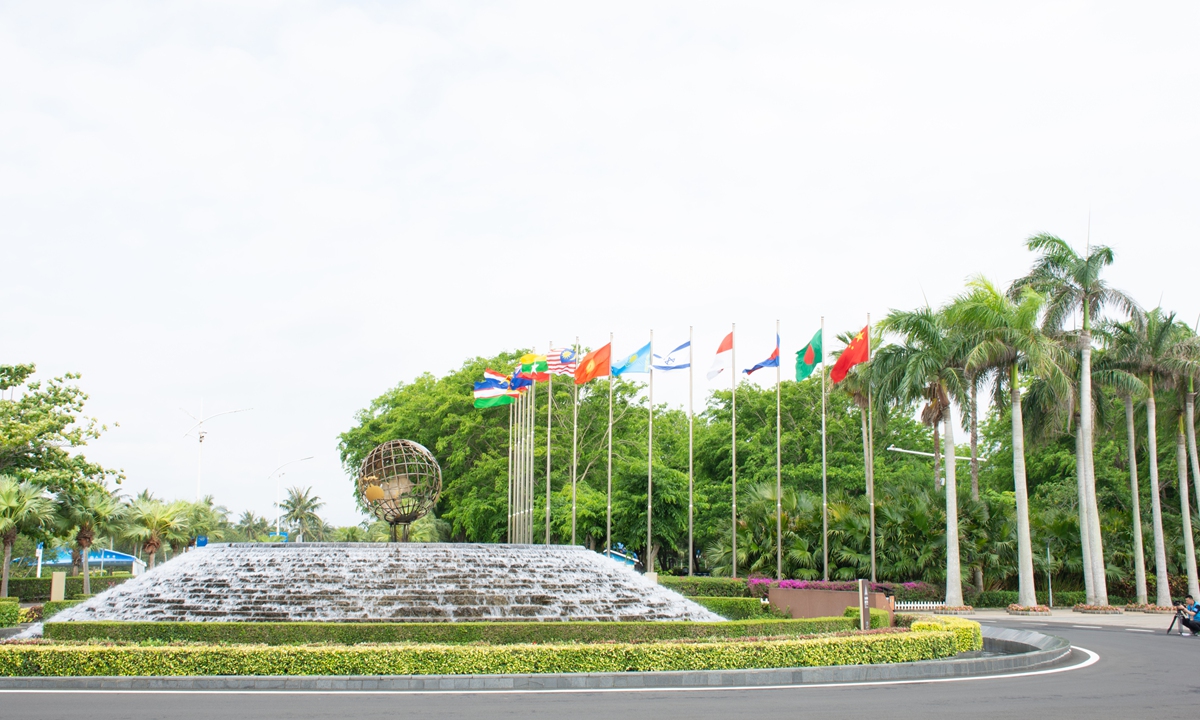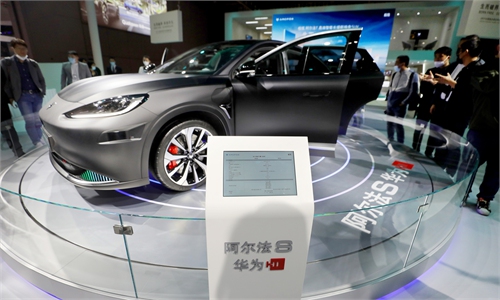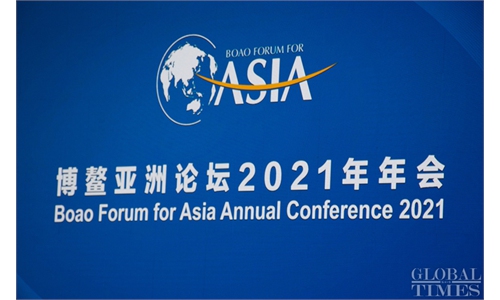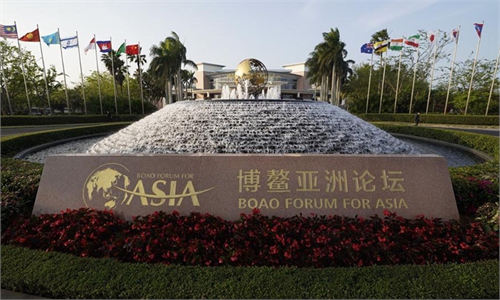
Boao Forum of Asia Photo:Chi Jingyi/GT
The US' alienation of cooperation in Asia has made many Asian countries confused and uneasy. This could also greatly undermine the atmosphere for regional globalization. In such a context, much attention has been drawn to the Boao Forum for Asia this year.
There are three underlying elements for the name, "Boao Forum for Asia."
First, it embodies what Europe and the US have accumulated in the past, and what Asia will be gained in the future. The forum highlights the transformation of economic globalization from the twin engines of Europe and the US to a new engine that has Asia included. The Regional Comprehensive Economic Partnership will form a triad together with the EU and the North American Free Trade Agreement.
Second, global governance will see a contribution by the wisdom of Asia, which is committed to "openness and inclusiveness." Meanwhile, Europe and the US have degenerated from liberalism to protectionism. The theme of this year's annual meeting is to strengthen global governance and advance the Belt and Road cooperation with joint hands. This requires overall coordination and comprehensive measures from all parties.
Third, Asian integration serves economic globalization. Asia has been responding to global challenges unseen in a century with changes and economic and social revolutions. Asian countries have deepened regional economic integration and promoted economic and social development in the past two decades, which has made the region the most dynamic economy with the greatest growth potential in the world. Countries in Asia and the rest of the world have joined hands to tackle traditional and non-traditional security threats to maintain regional stability and security.
Influenced by various factors such as the COVID-19 pandemic, economic globalization has transformed the global supply, industrial and value chains. Climate change (which involves new energy) and digitalization (networking and intelligent solutions) are two major variables that are shaping the international pattern in the 21st century. The Boao Forum discusses many such emerging and hot topics. This demonstrates how Asia is taking the lead in the next stages of globalization.
The EU has also launched its version of the "Indo-Pacific Strategy" recently to match the US one. But there are three major differences from the US model.
First of all, the strategy of the EU focuses more on cooperation rather than confrontation, emphasizing inclusiveness.
Second, it is clear about the intense geopolitical competition in the Indo-Pacific region, and advocates an active role that the EU plays in regional security and military fields. It wants to strengthen coordination with like-minded partners, and safeguard maritime security and freedom of navigation in accordance with international law. It also highlights cooperation in digital and green fields.
Last, the EU seems to think that China is in the Indo-Pacific scope by including the EU-China Comprehensive Agreement on Investment in the strategy document.
The EU thinks that Washington should not believe that the world belongs to the US. Brussels believes that it should avoid Washington's anti-Beijing policies, otherwise it will lose the opportunity to correct its mistakes, undermine its international competitiveness and credibility, and put others and the rest of the world at risk.
The Quad will not be able to get far too - as their interests are not fully aligned. The Boao Forum this year is the largest offline forum in the world since the outbreak of the pandemic. Except for Japan and India, who are currently fooled by the Quad mechanism, leaders of many other major economies in Asia attended the opening ceremony via video. This suggests that the Boao Forum for Asia is adhering to the original aspiration of Asian integration. It seeks to eliminate interference and revitalize Asia, which will also benefit the world.
The China-proposed Belt and Road Initiative is a wide avenue for all countries, not a private path for some specific country. So is the case with Asia. It is not merely a US playground and pawn. It is the "Asia for the world." Only in this way of thinking will Asian cooperation avoid regress and alienation.
The author is Jean Monnet chair professor and director of the Center for EU Studies at Renmin University of China. opinion@globaltimes.com.cn



